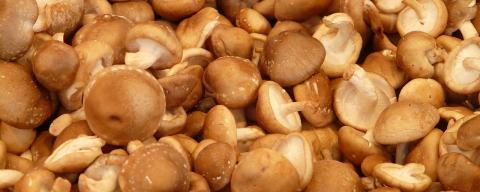Mushroom Food Safety
New Hampshire farmers are trying various strategies to diversify their business to increase profit and sustainability. Some have expressed an interest in growing and selling specialty mushrooms such as shiitake, oyster, and lion's mane, as a sole crop or as an addition to conventional crops.
Specialty mushrooms require gentle handling, packing and shipping. In this way, they are like heirloom tomatoes - difficult to successfully mass cultivate and ship; perfect, though, for smaller local growers and shorter shipping routes.
The tools below introduce production practices that mushroom growers can use to boost quality and shelf life that at the same time lower the risk of contamination with illness-causing germs. They can assist NH growers with exploring the details of how this added crop might fit into their existing farm plan.
Note: The popular commodity mushrooms: button, cremini, and portobello are not considered specialty mushrooms and so are not discussed in these materials.
Boosting the Quality and Safety of Specialty Mushrooms: [Fact Sheet]
This fact sheet introduces produce safety and quality considerations for growing specialty mushrooms indoors or outdoors on inoculated logs. View Fact Sheet
Boosting the Quality and Safety of Specialty Mushrooms: [Voiceover PowerPoint Recording]
This recorded presentation of the fact sheet material can be viewed or listened to as audio only (like a podcast). View Recording

Harnessing the Mighty Mushroom - Are mushrooms a good fit for your farm? [Recorded Webinar Series]
This three-part online recorded webinar series explores adding mushroom production to your agricultural business or as a stand-alone enterprise. Each session covers different aspects of mushroom cultivation and distribution. Producers from New Hampshire share their experiences and takeaways.




